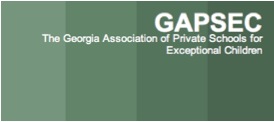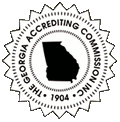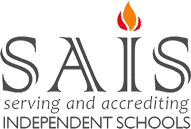Speech-Language Therapy
Speech-Language Goals
Speech-Language Therapy is another way in which Porter Academy builds a strong foundation for our students. There are many components involved in speech and language, and we must ensure that our students have these foundational abilities so that they can go on to be successful with higher level tasks such as academics and social interactions.
-
Auditory Processing: You must be able to hear sounds to produce them. Many students who have had chronic ear infections or other damage to the auditory system do not accurately discriminate sounds that are close in pitch. A person who is unable to hear a certain frequency accurately is going to be unable to accurately reproduce that frequency (a.k.a., letter sound).
-
Language Processing: You must learn to comprehend spoken language, integrating verbal information with non-verbal cues such as tone and facial expression.
-
Expressive and Pragmatic Language: You must be able to retrieve the words you want from the language centers of the brain, organize these words, utilize non-verbal components such as tone of voice, facial expression, and body language, and learn what is appropriate to say in various situations.
-
Articulation
-
Ideation: Some children struggle to plan how their mouths need to move in order to make certain sounds. At Porter Academy, our speech therapist helps students explicitly learn this step that does not come naturally for them. For example, students learn that to make the “L” sound, you put your tongue on the tip of the alveolar ridge of your mouth. They then use a big mirror to see their own tongues touch the alveolar ridge, integrating verbal, visual, and tactile input in order to teach these children how to correctly make the sounds.
-
Muscle Control: Some children’s oral muscles are weak or uncoordinated to the point where they are unable to move their tongues and lips in the right way to make the sound they want. Porter Academy students participate in oral-motor exercises to strengthen and develop coordination of these muscles.
-
-
Sequencing: You must be able to correctly sequence sounds within a word, words within a sentence, and sentences/ideas within a story.
-
Vocabulary: You must develop a large expressive and receptive vocabulary as well as learn to deduce the meaning of words from context clues.
- Social Skills: In addition to verbal communication, we work to help our students understand emotions (their own and others’) and non-verbal communication (facial expressions, body language).
Speech-Language Techniques
Our Speech-Language Therapist utilizes games and multi-sensory activities to more fully engage our students in the activities. They play games such as
- Articulation Go Fish: articulation, working memory, attention
- Artic Bingo: articulation, identifying location of target sound (beginning, middle, or end of word), deciphering riddles, formulating complete sentences
- Jeepers Peepers: deductive reasoning, asking strategic questions (planning), working memory
- Headbanz: deductive reasoning, asking strategic questions (planning), working memory
- WH Bingo: articulation, receptive language, expressive language, pragmatic language, formulating complete sentences
- Listening for Absurdities: language processing, formulating complete sentences, drawing conclusions
- Topic Talk: receptive language, expressive language, and pragmatic language
- Bubble Talk: Inferring, flexible thinking
- Social Inferences: Making inferences, reading comprehension, identify main idea
- Auditory Rhyme Time Card Game: rhyming words, vocabulary, word retrieval, receptive language, expressive language, and articulation
- Apples to Apples: semantics, compare and contrast, flexible thinking
- Sequence Sequence: vocabulary, classification, similarities/differences, sequencing, reading practice, comprehension
- Who Am I?: Sentence Structure, describing concepts
- Cause and Effect: reading comprehension, cause and effect, vocabulary, drawing conclusions
- Drawing Conclusions: reading comprehension, main idea, vocabulary, drawing conclusions
- Inference: reading comprehension, main idea, vocabulary, drawing conclusions, and predicting outcomes
- Pass the Story: Narrative skills, comprehension, inferencing, sequencing, cause and effect
- Main Idea Game: reading comprehension, main idea, and vocabulary
- Context Clues: reading comprehension, main idea, vocabulary, drawing conclusions, inferences, and predicting outcomes
Any time students are in speech-language therapy, they are expected to use clear speech and complete sentences with correct syntax. This way, articulation and word/thought organization is integrated into every activity. As you can see, a lot of work is done during “game time”, and the children love coming to speech therapy.






